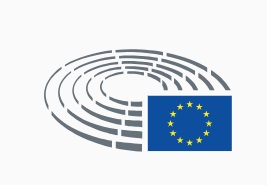
ECCREDI: Driving Innovation in Construction
The European Council for Construction Research, Development and Innovation (ECCREDI) plays a key role in shaping the future of Europe’s construction sector.
Research and innovation are essential to boosting productivity in the industry. While there have been significant breakthroughs (e.g. carbon-reduced materials, digitalisation, and circular construction), bringing these innovations to market remains a challenge. At the same time, the EU institutions have recently identified addressing rising costs of construction and housing affordability as priorities for the 2024-2029 mandate.
ECCREDI brings together the entire construction value chain, from contractors and engineers to architects, product manufacturers, and academia, with the aim of developing a coordinated strategy for improving competitiveness through productivity gains and supporting the market uptake of sustainable and innovative solutions.
As a founding member of ECCREDI, FIEC is committed to strengthening this collaboration. At the last Council meeting held on 24 September, our Policy Officer for Technical & Environmental Affairs, Benedikt Fischer, was elected 2nd Vice-President, reinforcing FIEC’s active role in this important work.
| Read more |

OSH: New survey on the impact of climate change and the use of digital technologies
The EU-OSHA published the OSH Pulse 2025 Survey, which focuses on psychosocial risks stemming from the use of digital technologies and from climate change, their impact on occupational safety and health (OSH) and the measures implemented to prevent these risks.
On climate change, the survey shows that 26% of construction workers are exposed to extreme heat and 25% report air quality issues. However, the construction sector scores better than other sector for the measures implemented to prevent the risks such as adjustment to work organisation, information and training or the consultation of workers.
On psychosocial risks, 47% of construction workers report severe time pressure or overload of work. The construction workers mention also less lack of reward (32%) or harassment or bullying (7%) compared to other sectors.
| Read more |

EXCEL4Housing4.0 Project
Stakeholder Roundtables
The Erasmus+ funded project EXCEL4Housing 4.0 (“Centres of Vocational Excellence for Energy Efficiency and Sustainable Housing”), of which FIEC is one of the partners, is conducting an in-depth study on skills gaps, labour market needs and future employment trends in the construction sector, with a focus on energy efficiency, sustainable housing, digitalisation, and circular economy practices. To engage stakeholders and validate research findings, two online roundtables will be organised, bringing together experts, practitioners, and training providers to share insights and best practices.
The first roundtable will take place on 31 October (9:30–13:00 CET) and will focus on digital skills and the digital transition in construction. The second roundtable will follow on 4 November (10:00–13:30 CET), addressing the green transition and circular economy in construction. Stakeholders are invited to participate and share their perspectives. To confirm your participation, please register for the sessions here:
• Roundtable on digital transition – 31 October
• Roundtable on green transition – 4 November
| Read more |

Traineeships: European Parliament adopts its position
On 23 June, the Employment and Social Affairs Committee (EMPL) of the European Parliament, adopted the report from MEP Alicia Homs Ginel (S&D, Spain) on the Traineeships Directive together with the mandate to start interinstitutional negotiations.
In March 2024, the European Commission published a proposal for a Directive on improving and enforcing working conditions for trainees and combatting regular employment relationships disguised as traineeships. The MEPs amended several aspects of this proposal such as the definition of traineeship or in introducing additional alarm bells to help detect and combat abusive practices. An important point for the construction sector is that MEPs explicitly exclude apprenticeships from the scope of this directive.
As the Council adopted its general approach back in June, the trilogue negotiations should start soon.
| Read more |

FIEC’s sectoral feedback on streamlined EU Sustainability Reporting Standards
This week, FIEC submitted feedback on the European Sustainability Reporting Standards (ESRS) to EFRAG, the European Financial Reporting Advisory Group, with a particular focus on their practical application in the construction sector.
In July, EFRAG published a set of exposure draft documents aimed at streamlining the ESRS framework. The consultation period, which closed yesterday, invited stakeholders, including preparers, to comment on proposed simplification measures.
FIEC welcomes these proposals, especially the reduction in complexity from over 1.100 individual data points. The EFRAG proposal would already reduce their number by 57% compared to the current ESRS Set I. FIEC supports the idea that reporting obligations should focus on the most essential criteria only, to ensure clarity and feasibility.
The ESRS framework includes both quantitative and qualitative data points. FIEC stresses that emphasis should be placed on clearly defined quantitative metrics, which allows for meaningful comparison between companies. By contrast, qualitative or informative disclosures should remain optional, as they are less standardised and often context-specific, limiting their usefulness for comparison.
The FIEC Position Paper titled “A pragmatic Omnibus Simplification Package to put the EU at the forefront of corporate sustainability while ensuring the competitiveness of businesses” explores specific policy proposals and recommendations for simplification, streamlining and strengthening the relevance of sustainability disclosures in the chapter about ESRS.
| Read more |

#FIEC120 – A message from Germany:
Tim-Oliver Müller, Director General of Hauptverband der Deutschen Bauindustrie (HDB)
Video-message by Tim-Oliver Müller, Director General of Hauptverband der Deutschen Bauindustrie (HDB), our German member federation, in the occasion of FIEC 120th anniversary, which is running throughout 2025.
We warmly thank Mr Müller for these very positive remarks and his wish for actions taken with a “strong voice” – for the construction sector – at EU and international level.
| WATCH VIDEO |



